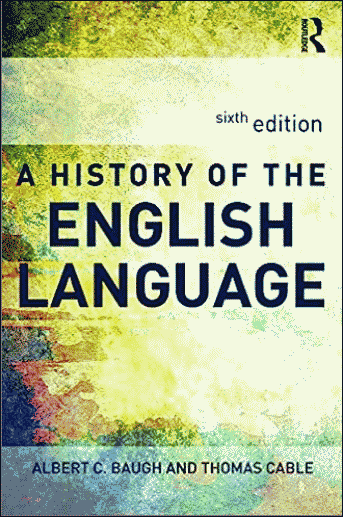2024-05-15 Wed
■ #5497. 「ゼロから学ぶはじめての古英語」 Part 6 with 小河舜さん and まさにゃん [voicy][heldio][masanyan][ogawashun][oe][oe_text][bede][christianity][anglo-saxon][st_augustine][hajimeteno_koeigo][hel_education][notice][popular_passage][history][literature]

5月9日(木)の夜,Voicy heldio にて「#1078. 「はじめての古英語」生放送 with 小河舜さん&まさにゃん --- Bede を読む (3)」をお届けしました.ライヴでお聴きの方々には,投げ込みのコメントや質問をいただきましてありがとうございました.
精読対象テキストは,前回に引き続き,Bede によりラテン語で著わされた『英国民教会史』 (Historia Ecclesiastica Gentis Anglorum [= Ecclesiastical History of the English People]) の古英語訳の1節です.原文は,hellog の「#5444. 古英語の原文を読む --- 597年,イングランドでキリスト教の布教が始まる」 ([2024-03-23-1]) に掲載していますので,そちらをご覧になりながらお聴きください.
著者の Bede については,heldio 「#1029. 尊師ベーダ --- The Venerable Bede」にて解説していますので,そちらもお聴きください.
今回は,古英語の動詞屈折の話題,とりわけ過去形や仮定法の話題に触れる機会が多くありました.また,定冠詞 the に相当する語の屈折についても議論しました.事後に出演者の1人「まさにゃん」こと森田真登さん(武蔵野学院大学)が,ご自身の note 上で復習となる記事「ゼロから学ぶ はじめての古英語(#6 生放送3回目)」を公開されているので,そちらも合わせてご参照ください.
これまでの「はじめての古英語」シリーズ回を一覧しておきます.
(1) 「#822. ゼロから学ぶはじめての古英語 --- Part 1 with 小河舜さん and まさにゃん」
(2) 「#829. ゼロから学ぶはじめての古英語 --- Part 2 with 小河舜さん and まさにゃん」
(3) 「#836. ゼロから学ぶはじめての古英語 --- Part 3 with 小河舜さん and まさにゃん」
(4) 「#1030. 「はじめての古英語」生放送 with 小河舜さん&まさにゃん --- Bede を読む」
(5) 「#1057. 「はじめての古英語」生放送 with 小河舜さん&まさにゃん --- Bede を読む (2)」
(6) 「#1078. 「はじめての古英語」生放送 with 小河舜さん&まさにゃん --- Bede を読む (3)」
目下,次回 Part 7 に向けて3人とも鋭意準備中です.
2024-05-07 Tue
■ #5489. 古英語の職業名の種類は中英語と同じくらい多様だったか否か [onomastics][personal_name][name_project][by-name][doublet][me][oe][anglo-saxon][norman_conquest][occupational_term]
昨日の記事「#5488. 中英語期の職業名(を表わす姓)の種類は驚くほど細分化されていて多様だった」 ([2024-05-06-1]) の内容から,新たな疑問が浮かんでくる.先立つ古英語期には,職業名の種類は中英語期と同じくらい細分化されていて多様だったのだろうか? あるいは,もっと貧弱だったのだろうか.これは言語の話題にとどまらず,文化の問題,アングロサクソン文明のトピックとなる.
昨日も参照した Fransson (31) は,おそらく古英語期には職業名はもっと貧弱だったろうと推測している.もっと言えば,多くの職業とその名前は,ノルマン征服 (norman_conquest) の影響のもとに,イングランド/英語にもたらされたのだろうと考えている.
Did this specialization exist before the Middle English period? The trade-names that are recorded in the Old English literature have been collected by Klump (Die altengl. Handwerkernamen). It is noteworthy that these are comparatively few in number; they are chiefly general names of trades, usually not specialized. A great number of the names in the present treatise are not represented there. To infer from this that all these did not exist in OE, is of course premature. The case is that we have no documents from that time in which trade-names are common. Much speaks in favour of the opinion, however, that many names of occupation did not come into existence until after the Norman conquest.
古英語に多くの職業名が文証されないということは,古英語に多くの職業がなかったことを必ずしも意味するわけではない.しかし,Fransson の見立てでは,そのように解釈してよいのではないかということだ.
中英語期の職業(名)の爆発が,ますますおもしろいテーマに思えてきた.
・ Fransson, G. Middle English Surnames of Occupation 1100--1350, with an Excursus on Toponymical Surnames. Lund Studies in English 3. Lund: Gleerup, 1935.
2024-04-24 Wed
■ #5476. 「ゼロから学ぶはじめての古英語」 Part 5 with 小河舜さん and まさにゃん [voicy][heldio][masanyan][ogawashun][oe][oe_text][bede][christianity][anglo-saxon][st_augustine][hajimeteno_koeigo][hel_education][notice][popular_passage][history][literature]

4月18日(木)の夜,Voicy heldio にて「#1057. 「はじめての古英語」生放送 with 小河舜さん&まさにゃん --- Bede を読む (2)」をお届けしました.ライヴでお聴きいただいたリスナーの方々には,盛り上げていただき感謝いたします.
前回に引き続き,精読対象となったテキストは,Bede によりラテン語で著わされた『英国民教会史』 (Historia Ecclesiastica Gentis Anglorum [= Ecclesiastical History of the English People]) の古英語訳からの1節です.3人で60分ほどかけてわずか1.5文しか進みませんでしたが,それだけ「超」精読・解説したということでお許しいただければと思います.同テキストは hellog の「#5444. 古英語の原文を読む --- 597年,イングランドでキリスト教の布教が始まる」 ([2024-03-23-1]) に掲載しています.
Bede については,heldio 「#1029. 尊師ベーダ --- The Venerable Bede」にて解説していますので,そちらもお聴きください.
復習のために,これまでの「はじめての古英語」シリーズ回を一覧しておきます.
(1) 「#822. ゼロから学ぶはじめての古英語 --- Part 1 with 小河舜さん and まさにゃん」
(2) 「#829. ゼロから学ぶはじめての古英語 --- Part 2 with 小河舜さん and まさにゃん」
(3) 「#836. ゼロから学ぶはじめての古英語 --- Part 3 with 小河舜さん and まさにゃん」
(4) 「#1030. 「はじめての古英語」生放送 with 小河舜さん&まさにゃん --- Bede を読む」
(5) 「#1057. 「はじめての古英語」生放送 with 小河舜さん&まさにゃん --- Bede を読む (2)」
今回の第5弾の収録の舞台裏については,プレミアム限定配信チャンネル「英語史の輪」 (helwa) のほうで「【英語史の輪 #111】「はじめての古英語」生放送の反省会&アフタートーク」としてお話ししていますので,ご関心のある方はぜひ helwa へお入りください.
最後に,本シリーズ出演者の小河舜さん(上智大学)と「まさにゃん」こと森田真登さん(武蔵野学院大学)については,以下の記事をご覧ください.
・ 「#5445. 小河舜さんとのhel活(まとめ)」 ([2024-03-24-1])
・ 「#5446. まさにゃんとのhel活(まとめ)」 ([2024-03-25-1])
今後も応援のほどよろしくお願い致します! 本シリーズ第6弾もお楽しみに!
2024-03-23 Sat
■ #5444. 古英語の原文を読む --- 597年,イングランドでキリスト教の布教が始まる [bchel][voicy][heldio][masanyan][ogawashun][oe][oe_text][bede][christianity][anglo-saxon][st_augustine][hajimeteno_koeigo][hel_education][notice][popular_passage][history][literature]
731年,ビード (あるいはベーダ;Bede [673--735]) によりラテン語で著わされた『英国民教会史』 (Historia Ecclesiastica Gentis Anglorum [= Ecclesiastical History of the English People]) は,古代イングランド史を記した貴重なテキストである.後にアルフレッド大王 (849--99) の指示のもとで古英語に翻訳されている.
597年,ローマの修道士で,後にカンタベリの初代大司教となる St. Augustine (?--604) が,イングランドに布教にやってきた.イングランド史上きわめて重大なこの年に起こった出来事について,Bede の古英語版より読んでみたい.以下,英語史の古典的名著 Baugh and Cable (pp. 58--60) に掲載されている古英語原文を再現する.
Ða wæs on þā tīd Æþelbeorht cyning hāten on Centrīce, and mihtig: hē hæfde rīce oð gemǣru Humbre strēames, sē tōscādeþ sūðfolc Angelþēode and norðfolc. Þonne is on ēasteweardre Cent micel ēaland, Tenet, þæt is siex hund hīda micel æfter Angelcynnes eahte. . . . On þyssum ēalande cōm ūp sē Godes þēow Augustinus and his gefēran; wæs hē fēowertiga sum. Nāmon hīe ēac swelce him wealhstodas of Franclande mid, swā him Sanctus Gregorius bebēad. And þā sende to Æþelbeorhte ǣrendwrecan and onbēad þæt hē of Rōme cōme and þæt betste ǣrende lǣdde; and sē þe him hīersum bēon wolde, būton twēon he gehēt ēcne gefēan on heofonum and tōweard rīce būton ende mid þone sōþan God and þone lifigendan. Ðā hē þā sē cyning þās word gehīerde, þa hēt hē hīe bīdan on þæm ēalande þe hīe ūp cōmon; and him þider hiera þearfe forgēaf, oð þæt hē gesāwe hwæt hē him dōn wolde. Swelce ēac ǣr þǣm becōm hlīsa tō him þǣre crīstenan ǣfæstnesse, forþon hē crīsten wīf hæfde, him gegiefen of Francena cyningcynne, Beorhte wæs hāten. Þæt wīf hē onfēng fram hiere ieldrum þǣre ārǣdnesse þæt hēo his lēafnesse hæfde þæt hēo þone þēaw þæs crīstenan gelēafan and hiere ǣfæstnesse ungewemmedne healdan mōste mid þȳ biscope, þone þe hīe hiere tō fultume þæs gelēafan sealdon, þæs nama wæs Lēodheard.
Ðā wæs æfter manigum dagum þæt sē cyning cōm tō þǣm ēalande, and hēt him ūte setl gewyrcean; and hēt Augustinum mid his gefērum þider tō his sprǣce cuman. Warnode hē him þȳ lǣs hīe on hwelc hūs tō him inēoden; brēac ealdre hēalsunga, gif hīe hwelcne drȳcræft hæfden þæt hīe hine oferswīðan and beswīcan sceolden. . . . Þā hēt sē cyning hīe sittan, and hīe swā dydon; and hīe sōna him līfes word ætgædere mid eallum his gefērum þe þǣr æt wǣron, bodedon and lǣrdon. Þā andswarode sē cyning and þus cwæð: "Fæger word þis sindon and gehāt þe gē brōhton and ūs secgað. Ac forðon hīe nīwe sindon and uncūðe, ne magon wē nū gēn þæt þafian þæt wē forlǣten þā wīsan þe wē langre tīde mid ealle Angelþēode hēoldon. Ac forðon þe gē hider feorran elþēodige cōmon and, þæs þe mē geþūht is and gesewen, þā þing, ðā ðe [gē] sōð and betst gelīefdon, þæt ēac swelce wilnodon ūs þā gemǣnsumian, nellað wē forðon ēow hefige bēon. Ac wē willað ēow ēac fremsumlīce on giestlīðnesse onfōn and ēow andleofne sellan and ēowre þearfe forgiefan. Ne wē ēow beweriað þæt gē ealle, ðā þe gē mægen, þurh ēowre lāre tō ēowres gelēafan ǣfæstnesse geðīeden and gecierren."
目下,Baugh and Cable の英語史書 A History of the English Language を1節ずつ丁寧に読んでいくオンライン読書会シリーズを Voicy heldio で展開中です(有料配信ですが第1チャプターは試聴可).上に引用した古英語原文が含まれているのは第47節で,これを扱った回は「英語史の古典的名著 Baugh and Cable を読む (47) The Language Illustrated」です.ただし,そこでは上記の古英語原文は,かなり長いために解説するのを割愛していました.
これを補うべく,明後日3月25日(月)の午後1時30分より heldio の生放送による解説を配信します.小河舜さん(フェリス女学院大学ほか)および「まさにゃん」こと森田真登さん(武蔵野学院大学)とともに,「はじめての古英語」シリーズの一環としての特別企画です.上記の古英語原文は,その予習用として掲げた次第です.お楽しみに!

Bede の古英語訳の原文としては,ほかにも「#2900. 449年,アングロサクソン人によるブリテン島侵略」 ([2017-04-05-1]) を参照.
・ Baugh, Albert C. and Thomas Cable. A History of the English Language. 6th ed. London: Routledge, 2013.
2024-01-06 Sat
■ #5367. England の歴史的な異形態 [spelling][oed][link][shortening][haplology][med][anglo-saxon]
昨日の記事「#5366. England と English の語源を深掘りする回」 ([2024-01-05-1]) で触れた England について,歴史的な異形態(あるいは異綴字)を OED に従って列挙してみたい.OED によると,この語の異形態は大きく3つの系列に分けられる.
α. OE Ænglaland, Anglaland (rare), Englalond, OE-eME Ængleland, Englaland, lOE Englæland, lOE-eME Engleland, eME Aenglelond, Englalande, Englelond, Englelonde.
β. eME Anglenelonde, Engleneloande, Englenelond, Englenelonde.
γ. ME Ægeland, Eangelond, Engelande, Engelond, Engelonde, Enguelonde, Enkelonde, Ingelond, Ingelonde, Inglond, Inglonde, Yngelond, ME-15 Englond, Englonde, Ingeland, Ynglond, ME-16 Englande, Ingland, ME- England, 15 Eingland, Eyngland, Yngellond, 16 Inglant (Irish English), 17 Englone (Irish English); Sc. pre-17 Engelande, Englande, Englonde, Ingland, Inglande, Yngland, Ynglande, Ynglond, pre-17 17- England.
α系列の綴字は本来の語源形に最も近いもので,Angle (アングル人)の複数属格形である Angla に land (土地,国)が接続した複合語である.綴字上 <l> の文字が2度,典型的には <lala> のような繋がりで現われるのがポイントである.
β系列は,複数属格語尾に本来強変化名詞で予想される -a ではなく,弱変化名詞屈折から借りてきたとおぼしき -ena が用いられる系列である.これについては,A. Campbell Old Eng. Gram. (1959) §610 (7) を参照するようにとあったので参照してみると,「マーシア人たちの」を意味する Mierċcna (-ena) の形態を念頭に置きつつ次のように述べている.
The adoption of g.p. -ena, -na is obscure; once adopted it caused further confusion with the weak nouns (Seaxan, Englan, &c.).
βγ系列は,α系列の <lala> の連続を嫌って重音脱落 (haplology) を経た綴字である.現代標準の England に連なる系列と理解してよい.「#2362. haplology」 ([2015-10-15-1]) を参照.
ちなみに MED の Engelōnd n.[/sic] によると, "Also Eng(e)land, (early) Engle(ne lond, (late) Ing(e)lond." と異形態が与えられていた.
このように England という重要な国号の形態・綴字とて歴史的には長らく揺れを示してきたのである.関連して以下の記事や放送回を参照.
・ hellog 「#1145. English と England の名称」 ([2012-06-15-1])
・ hellog 「#1436. English と England の名称 (2)」 ([2013-04-02-1])
・ hellog 「#2250. English の語頭母音(字)」 ([2015-06-25-1])
・ heldio 「#16. そもそも English という単語はナゾだらけ!」
・ heldio 「#251. 複数形 Englishes の出現」
・ Campbell, A. Old English Grammar. Oxford: OUP, 1959.
2024-01-05 Fri
■ #5366. England と English の語源を深掘りする回 [bchel][etymology][voicy][heldio][helwa][anglo-saxon][kdee][link][onomastics][ethnonym]
本ブログの姉妹版・音声版の Voicy 「英語の語源が身につくラジオ (heldio)」では,有料ではありますが「英語史の古典的名著 Baugh and Cable を読む」と題するオンライン超精読回のシリーズを,この半年のあいだ,おおよそ定期的にお届けしています.バックナンバーは「#5291. heldio の「英語史の古典的名著 Baugh and Cable を読む」シリーズが順調に進んでいます」 ([2023-10-22-1]) をご覧ください.
昨日,最新回となる「英語史の古典的名著 Baugh and Cable を読む (34) The Names "England" and "English"」を配信しました.England と English という,英語史上きわめて重要な語の語源に迫る半ページ弱の文章を30分以上かけて解きほぐしています.
この回を配信した機会を逃さずに,本日午後6時より,Voicy プレミアムリスナー限定配信チャンネル「英語史の輪 (helwa)」での配信となりますが,この話題と関連する生放送を「【英語史の輪 #77】新年会直前,『英語語源辞典』で England と English を精読する」と題してお届けする予定です.

寺澤芳雄(編集主幹)『英語語源辞典』(研究社,1997)を手元に置いておられる方はそれを目の前に置き,そうでない方は今回のためにスキャンしたこちらの画像を参考に,ぜひ聞いていただけば幸いです.きわめて重要な単語の語源を深掘りしていきます.
こちらの helwa はプレミアム限定チャンネルですが,この1月より初月無料の試聴サービスを提供しています.日々 heldio の通常配信をお聴きの方々のなかには,プレミアム限定チャンネルは気になっていたけれど課金して参加するにはハードルが高い,まずはどんな雰囲気なのか試聴してみたい,という方もいらっしゃるかもしれません.ぜひこの1ヶ月のあいだ試聴していただき,続けてもよいと思った場合には2月以降もお付き合いいただければと思います.そうでなければ辞めていただくということで,まったくけっこうです.
余談ですが,上記の予約済の生放送のタイトルにも示されているとおり,helwa ではプレミアムリスナー限定のオンライン新年会を,生放送終了後の午後7時から開催予定です.
予習・復習のために,今回の話題と関連する hellog, heldio, その他のリソースとして以下を挙げておきます.
・ hellog 「#1145. English と England の名称」 ([2012-06-15-1])
・ hellog 「#1436. English と England の名称 (2)」 ([2013-04-02-1])
・ hellog 「#2250. English の語頭母音(字)」 ([2015-06-25-1])
・ heldio 「#16. そもそも English という単語はナゾだらけ!」
・ heldio 「#251. 複数形 Englishes の出現」
・ heldio 「#683. なぜ English のように -ish のつく呼び名はイギリス周辺に多いの? --- 青木輝さんとの対談」
・ 「歴史で謎解き!フランス語文法 第45回 国や地域の住民名はどのように決まるの?」
・ 寺澤 芳雄(編集主幹) 『英語語源辞典』 研究社,1997年.
2023-12-10 Sun
■ #5340. 「ゲルマン征服」をめぐって Taku さんと対談精読実況生中継しました --- heldio の「英語史の古典的名著 Baugh and Cable を読む」シリーズ [voicy][heldio][hel_education][link][notice][bchel][anglo-saxon][oe][jute][history][germanic]
一昨日12月8日(金)の夜に,帝京科学大学の金田拓さんとともに,Baugh and Cable の英語史書の「対談精読実況生中継」を Voicy heldio/helwa で配信しました.前半と後半を合わせて2時間弱の濃密なおしゃべり読書会となりました.ライヴでお聴きいただいた多くのリスナーの方々に感謝いたします.ありがとうございました.
精読対象となったのはの同書の第32節 The Germanic Conquest (ゲルマン征服)です.伝統的に英語史の開始とされる449年とその前後の出来事にフォーカスしました.対談相手を務めていただいた Taku さんとともに,著者の英文に唸りつつ,内容についてもなるべく深く掘り下げて議論しました.当該の英文テキストは,先日の予告記事「#5335. 「ゲルマン征服」 --- Baugh and Cable の英語史より」([2023-12-05-1])に掲載しています.
(1) 「#922. 英語史の古典的名著 Baugh and Cable を読む (32) The Germanic Conquest --- Taku さんとの実況中継(前半)」
(2) 「【英語史の輪 #65】英語史の古典的名著 Baugh and Cable を読む (32) The Germanic Conquest --- Taku さんとの実況中継(後半)」(12月分のプレミアムリスナー限定配信チャンネル「英語史の輪」 (helwa) に含まれる有料配信です)
今回の対談精読実況生中継をお聴きになって,このオンライン精読シリーズに関心を持った方は,ぜひ本書を入手し,シリーズ初回からゆっくりと追いかけていただければと思います.間違いなく良書です.配信のバックナンバーは「#5291. heldio の「英語史の古典的名著 Baugh and Cable を読む」シリーズが順調に進んでいます」 ([2023-10-22-1]) よりご確認ください.今後も週1,2回のペースでシリーズを継続していきます!

・ Baugh, Albert C. and Thomas Cable. A History of the English Language. 6th ed. London: Routledge, 2013.
2023-09-16 Sat
■ #5255. Voicy heldio の「ゼロから学ぶはじめての古英語」シリーズへご好評いただいています [oe][masanyan][ogawashun][hel_education][voicy][heldio][runic][anglo-saxon][link][notice][alfred][beowulf][proverb][heldio_community][hajimeteno_koeigo]
毎朝6時に音声配信している Voicy 「英語の語源が身につくラジオ (heldio)」にて「ゼロから学ぶはじめての古英語」シリーズが始まっています(不定期で無料の配信です).第3回まで配信してきましたが,嬉しいことにリスナーの皆さんにはご好評いただいています.各配信回の概要欄やチャプターに紐付けられたリンク先に,題材となっている古英語のテキストなども掲載していますので,そちらを参照しながら聴いていただければと思います.これまでの3回では,アルフレッド大王,古英語の格言,叙事詩『ベオウルフ』に関係する文章が取り上げられています.本当に「初めての方」に向けての講座となっていますので,お気軽にどうぞ.
ナビゲーターは英語史や古英語を専攻する次の3人です.小河舜さん(フェリス女学院大学ほか),khelf(慶應英語史フォーラム)元会長の「まさにゃん」こと森田真登さん(武蔵野学院大学),および堀田隆一です.3人で楽しそうに話しているのが魅力,との評価もいただいています.
毎回,厳選された古英語の短文を取り上げ,文字通り「ゼロから」解説しています.日本語による解説つきで気軽に始められる「古英語講座」なるものは,おそらくこれまでどの媒体においても皆無だったのではないでしょうか(唯一の例外は,まさにゃんによる「毎日古英語」かもしれません).このたびのシリーズは,その意味では本邦初といってよい試みとなります.ナビゲーター3人も,肩の力を抜いておしゃべりしていますので,それに見合った気軽さで聴いていただければと思います.
本シリーズのサポートページとして,まさにゃんによる note 記事「ゼロから学ぶはじめての古英語(#1~#3)」が公開されています.また,X(旧ツイッター)上の「heldio コミュニティ by 堀田隆一」にて関連情報も発信しています.このコミュニティは承認制ですが,基本的にはメンバーリクエストをいただければお入りいただけますので,ぜひご参加ください.
シリーズの第4弾もお楽しみに!
2023-09-05 Tue
■ #5244. 少し遅い時代の古英語地名 [oe][toponymy][anglo-saxon][name_project][onomastics][history][chronology][farming]
昨日の記事「#5243. 異教時代の古英語地名」 ([2023-09-04-1]) で,地名研究により,その土地がどの時代に開拓されたかを知る手がかりが得られる場合があると述べた.
昨日の Tysoe, Wensley, Thursley, Friden, Harrow, Weeford などは,第1要素が異教を彷彿とさせるため,アングロサクソン時代でもとりわけ古い層に属すると紹介したが,ちょうど逆のケースもある.例えば,「専門農場」と訳出すべき wīc を含む地名は,農業が確立した後につけられたものと考えられるが,それはイングランドの農業史に鑑みて8世紀以降のことと推測される.つまり,同じ古英語期でも相対的に遅めの開拓であることが示唆される.Hough (98) より関連する箇所を引用する.
. . . some elements may be dated to a later phase of settlement on semantic or other grounds. Place-names from OE wīc 'specialized farm' are indicative of established farming communities, and are considered unlikely to have been coined before the eighth century AD. Examples from England include Butterwick (butter), Cheswick (cheese), Gatwick (goats), and Shapwick (sheep); examples from Scotland include Berwick (barley), Hedderwick (heather), and Sunwick (pigs).
挙げられている例は,分かりやすいものを選んだということかもしれないが,乳製品を産する農場が多い.地名や固有名詞の研究は,ただ言語学的,形式的な研究だけでは済みそうもない,ということが理解できる.
・ Hough, Carole. "Settlement Names." Chapter 6 of The Oxford Handbook of Names and Naming. Ed. Carole Hough. Oxford: OUP, 2016. 87--103.
2023-09-04 Mon
■ #5243. 異教時代の古英語地名 [oe][toponymy][anglo-saxon][christianity][name_project][onomastics][history][chronology][heathenism]
地名の構成要素の意味をひもとくことによって,どの時代にその地名がつけられたのか,示唆を得られる事例がある.同じ場所が後に別の地名に置き換えられていたりするので,時系列に整理した上で慎重に解釈する必要があるが,地名研究が歴史学など他分野に貢献し得る点で興味深い.
Hough (98) によると,キリスト教化する以前のイングランドの古英語地名に,異教の神や寺院などの名前が用いられているものがあるという.このようなケースでは,それだけ古い土地であると解釈してよさそうだ.
Also indicative of early settlement are place-names referring to religious or other customs that were later superseded. Place-names referring to Anglo-Saxon paganism represent an early stratum which must pre-date the conversion to Christianity around 627. In England they fall into two main groups: those containing the names of pagan gods, and those containing a word for a heathen shrine or temple. Examples of the former are Tysoe (Tiw + OE hōh 'heel; hill-spur'), Wensley (Woden + OE lēah 'wood, clearing'), Thursley (Thunor + OE lēah 'wood, clearing', and Friden (Frig + denu 'valley'); examples of the latter are Harrow (OE hearg 'temple') and Weeford (OE wēoh 'shrine' + ford 'ford). The absence of either type from the corpus of Old English place-names in Scotland is usually taken to indicate that the Anglo-Saxons did not move north until after the conversion to Christianity, although this has been challenged on the grounds that pagan names are also absent from large areas of England . . . .
このような異教的地名がスコットランドには認められないという議論も意味深長である.
・ Hough, Carole. "Settlement Names." Chapter 6 of The Oxford Handbook of Names and Naming. Ed. Carole Hough. Oxford: OUP, 2016. 87--103.
2023-09-01 Fri
■ #5240. Voicy heldio で「ゼロから学ぶはじめての古英語」シリーズが始まりました [oe][masanyan][ogawashun][hel_education][voicy][heldio][runic][anglo-saxon][link][notice][hel_education]
昨日の Voicy 「英語の語源が身につくラジオ (heldio)」の配信で,待望の(?)の古英語入門講座がスタートしました.「#822. ゼロから学ぶはじめての古英語 --- Part 1 with 小河舜さん and まさにゃん」です(上記の左側のパネル).シリーズ初回のメインパーソナリティは小河舜さん(フェリス女学院大学ほか),そして進行補佐が「まさにゃん」こと森田真登さん(武蔵野学院大学)と私,堀田隆一です.
初回ということで,古英語の短い1文のみを素材として導入しています.9世紀に文武両道で活躍したウェセックスのアルフレッド大王 (King Alfred) による言葉です.大英図書館のサイトの King Alfred's Translation of the Pastoral Care より,写本画像が閲覧できます.
Þeos boc sceal to Wiogora ceastre
今回取り上げるのはこの短い文のみですが,実はここに古英語とアングロサクソン文化の様々な側面が凝縮されているのです.小河さんが,それを解凍し,やさしく解説しくれています.また,まさにゃんもこちらの note 記事にて補足を加えてくれています.
私自身も,今朝の Voicy 配信で補足のお話しをお届けしています.「#823. 昨日の「ゼロから学ぶはじめての古英語 --- Part 1」の補足と関連過去回」をお聴き下さい(上記の右側のパネル).今朝の配信では関連する過去回に多く言及しましたが,Voicy から直接飛ぶには不便かと思いますので,以下にリンクを張っておきます.この週末などのお時間のあるときに,今回の例文 "Þeos boc sceal to Wiogora ceastre" と関連付けて,古英語とアングロサクソンの世界に浸っていただければと思います.
シリーズ第2回も近日公開予定ですので,お楽しみに! 初回へのご感想やご意見も Voicy のコメントよりお寄せいただけますと幸いです.
[ 指示代名詞 this をめぐる謎 ]
・ 「#233. this, that, the などの th は何を意味するの?」
・ 「#274. 不定指示形容詞の this」
・ 「#432. なぜ短縮形 that's はあるのに *this's はないの?」
・ 「#493. 指示詞 this, that, these, those の語源」
[ 名詞 book の深すぎる歴史 ]
・ 「#661. book と beech --- 本とブナの関係は?」
・ 「#662. 印欧祖語の故郷をめぐるブナ問題」
[ 衰退気味の shall の諸相 ]
・ 「#218. shall と will の使い分け規則はいつからあるの?」
・ 「#530. 日本ハム新球場問題の背後にある英語版公認野球規則の shall の用法について」
[ 前置詞の to もあるけれど不定詞マーカーの to にも注目を ]
・ 「#645. to 以外の不定詞マーカー」
・ 「#688. なぜ不定詞には to 不定詞 と原形不定詞の2種類があるの?」
[ イングランド地名についてアレコレ ]
・ 「#306. 市川誠先生との対談 長万部はイングランドか!?」
・ 「#349. 市川誠先生との対談 「ウスター」と「カステラ」,「レスター」と「リア王」」
・ 「#819. 古英語地名入門 with 小河舜さん」
[ 古英語一般の理解のために ]
・ 「#148. 古英語期ってどんな時代?」
・ 「#149. 対談 [[「毎日古英語」のまさにゃんと,古英語ってどんな言語?」
・ 「#326. どうして古英語の発音がわかるのですか?」
・ 「#628. 古英語の単語はどれくらい現代英語に受け継がれているの?」
・ 「#778. 古英語の文字 --- 7月29日(土)の朝カルのシリーズ講座第2回に向けて」
2023-08-23 Wed
■ #5231. 古英語の人名には家系を表わす姓 (family name) はなかったけれど [oe][anglo-saxon][onomastics][name_project][personal_name][alliteration][patronymy][by-name]
古英語の人名には,現代の family name や last name に相当する「姓」はない.「#590. last name はいつから義務的になったか」 ([2010-12-08-1]) で触れたように,姓が現われるようになるのはノルマン征服後のことである.
しかし,家系や所属を標示する発想がまるでなかったわけではない.特に王家の系統については,男性の名前を同じ子音で始める頭韻 (alliteration) の傾向が見られるという.いわば音象徴 (sound_symbolism) で家系を示唆してしまおうという,なんとも雅びで奥ゆかしい伝統ではないか.
Clark (458) が次のように説明し,例を挙げている.
Despite the lack of 'family-names' in the modern sense, kinship-marking was a main motive behind old Germanic naming . . . . Thus, royal genealogies, whose partly mythical character makes them likely to show idealised forms, regularly exhibit runs of alliteration, as in the West Saxon sequence: Cerdic, Cynric, Ceawlin, Cuða, Ceada, Benbeorht, Ceadwalla . . . .
ほかに,男性名について,規則的ではないものの,父や兄弟の名前に含まれる要素を共有する傾向がみられるという (cf. 父称 (patronymy)) .
女性名については,いかんせん記録が少なく,一般的な傾向は指摘しにくいようである.例えば Bede に挙げられている名前一覧でいえば,古英語女性人名は全体の1/7以下にとどまるという.
・ Clark, Cecily. "Onomastics." The Cambridge History of the English Language. Vol. 1. Ed. Richard M. Hogg. Cambridge: CUP, 1992. 452--89.
2023-08-21 Mon
■ #5229. 古英語期中に人名のトレンドは変わったか? [oe][anglo-saxon][onomastics][name_project][personal_name][diachrony][bede][domesday_book][by-name]
連日,古英語期における名前に注目している.古英語期と一口にいっても数世紀の長さにわたる時代なので,その内部で通時的変化があったとしてもおかしくない.人名の名付けにトレンドがあることは現代の英語でも日本語でもよく知られている通りであり,古英語期にもその時々の流行があったとしても驚かないだろう.
Clark (461) は,Bede により731年に著わされた Historia Ecclesiastica Gentis Anglorum (= Ecclesiastical History of the English People) と William I が1086年に作らせた土地台帳 the Domesday Book における人名を比較し,名付けの傾向の通時的変化らしきものについて次のように述べている.
Although neither sample can be taken fully to represent contemporary usages, it is no accident that in detail the recorded stocks differ, with deuterotheme usages similar but only half the protothemes in common. Even with allowance for the greater number of name-bearers represented in DB, overall variability seems little reduced. Some change of custom has none the less taken place: the fairly even seventh-century frequency-pattern has given way to a markedly uneven one, with many names occurring just once or twice but a particular few, such as Ælfrīc, Godrīc, Godwine, Lēofwine and Wulfrīc, having each a multitude of bearers distinguished from one another by by-names (a similar pattern appears in the names of Suffolk peasants of probably ca 1100 . . .). This development parallels those seen in continental West-Germanic communities. . . .
必ずしも明確な通時的変化であるとして強調しているわけではないが,Clark は後期古英語にかけて人名の多様性が増してきたと分析していることがわかる.一方で,旧来の主要な少数の名前は残っており,同名の場合には別の要素 (by-names) を付け加えることにより区別されるようになってきたという.
名付けの流行の変化の背後に何があったのか,気になるところだ.「#813. 英語の人名の歴史」 ([2011-07-19-1]) を参照.
・ Clark, Cecily. "Onomastics." The Cambridge History of the English Language. Vol. 1. Ed. Richard M. Hogg. Cambridge: CUP, 1992. 452--89.
2023-08-20 Sun
■ #5228. 古英語の人名の愛称には2重子音が目立つ [oe][anglo-saxon][onomastics][name_project][personal_name][consonant][phonetics][shortening][hypocorism][germanic][sound_symbolism]
古英語の人名の愛称 (hypocorism) の特徴は何か,という好奇心をくするぐる問いに対して,Clark (459--60) が先行研究を参考にしつつ,おもしろいヒントを与えてくれている.主に音形に関する指摘だが,重子音 (geminate) が目立つのだという.
Clearly documented hypocoristics often show modified consonant-patterns . . . . Thus, the familiar form Saba (variant: Sæba) by which the sons of the early-seventh-century King Sǣbeorht (Saberctus) of Essex called their father showed the first element of the full name extended by the initial consonant of the second, in a way perhaps implying that medial consonants following a stressed syllable may have been ambisyllabic . . . . In the Germanic languages generally, a consonant-cluster formed at the element-junction of a compound name was often simplified in the hypocoristic form to a geminate, Old English examples including the masc. Totta < Torhthelm, the fem. Cille < Cēolswīð, and also the masc. Beoffa apparently derived from Beornfrið . . . .
重子音化や子音群の単純化といえば,日本語の「さっちゃん」「よっちゃん」「もっくん」「まっさん」等々を想起させる.日本語の音韻論では重子音(促音)そのものの生起が比較的限定されているといってよいが,名前やその愛称などにはとりわけ多く用いられているような印象がある.音象徴 (sound_symbolism) の観点から,何らかの普遍的な説明は可能なのだろうか.
・ Clark, Cecily. "Onomastics." The Cambridge History of the English Language. Vol. 1. Ed. Richard M. Hogg. Cambridge: CUP, 1992. 452--89.
2023-08-19 Sat
■ #5227. 古英語の名前研究のための原資料 [oe][anglo-saxon][onomastics][evidence][philology][methodology][name_project][domesday_book]
連日の記事「#5225. アングロサクソン人名の構成要素 (2)」 ([2023-08-17-1]),「#5226. アングロサクソン人名の名付けの背景にある2つの動機づけ」 ([2023-08-18-1]) で引用・参照してきた Clark (453) より,そもそも古英語の名前研究 (onomastics) の原資料 (source-materials) にはどのようなものがあるのかを確認しておきたい.
The sources for early name-forms, of people and of places alike, are, in terms of the conventional disciplines, ones more often associated with 'History' than with 'English Studies': they range from chronicles through Latinised administrative records to inscriptions, monumental and other. Not only that: the aims and therefore also the findings of name-study are at least as often oriented towards socio-cultural or politico-economic history as towards linguistics. This all goes to emphasise how artificial the conventional distinctions are between the various fields of study.
Thus, onomastic sources for the OE period include: chronicles, Latin and vernacular; libri vitae; inscriptions and coin-legends; charters, wills, writs and other business-records; and above all Domesday Book. Not only each type of source but each individual piece demands separate evaluation.
伝統的な古英語の文献学的研究とは少々異なる視点が認められ,興味深い.とはいえ,文献学的研究から大きく外れているわけでもない.文献学でも引用内で列挙されている原資料はいずれも重要なものだし,引用の最後にあるように "each individual piece" の価値を探るという点も共通する.ただし,固有名は一般の単語よりも同定が難しいため,余計に慎重を要するという事情はありそうだ.
原資料をめぐる問題については以下の記事を参照.
・ 「#1264. 歴史言語学の限界と,その克服への道」 ([2012-10-12-1])
・ 「#2865. 生き残りやすい言語証拠,消えやすい言語証拠――化石生成学からのヒント」 ([2017-03-01-1])
・ 「#1051. 英語史研究の対象となる資料 (1)」 ([2012-03-13-1])
・ 「#1052. 英語史研究の対象となる資料 (2)」 ([2012-03-14-1])
・ Clark, Cecily. "Onomastics." The Cambridge History of the English Language. Vol. 1. Ed. Richard M. Hogg. Cambridge: CUP, 1992. 452--89.
2023-08-18 Fri
■ #5226. アングロサクソン人名の名付けの背景にある2つの動機づけ [name_project][onomastics][personal_name][anglo-saxon][oe][bede][beowulf]
昨日の記事「#5225. アングロサクソン人名の構成要素 (2)」 ([2023-08-17-1]) で,Clark を参照して Bede にみられる古英語人名の傾向を確認した.そこでの人名を構成する "themes" に対応する語彙は,古英詩 Beowulf でもよく用いられている単語群であり,古英語における文化的キーワードを表わすものといえるかもしれない.
一方で,名付けの実際に当たっては,それぞれの themes の意味が,古英語期に共時的に理解されていたかどうかは分からない.当初は名前に込められていた「意味」が形骸化するのはよくあることだし,Beowulf の語彙は詩の語彙であり,古英語当時ですら古風だったことは,よく指摘されきたことである.アングロサクソンの文化的キーワードというよりも文化遺産的キーワードといったほうがよいようにも思われる.
この点について,Clark も慎重な見解を示している (457--58) .
Name themes thus largely parallel the diction of heroic verse . . . . Kindred elements in the diction of Beowulf include common items such as beorht, cēne, cūð, poetic ones such as brego and torht, and also, more strikingly, compounds like frēawine 'lord and friend', gārcēne 'bold with spear', gūðbeorn 'battle-warrior', heaðomǣre 'renowned in battle', hildebill 'battle-blade', wīgsigor 'victorious in battle' . . . . Parallels must not be pressed; for rules of formation differed and, more crucially, such 'meaning' as name-compounds possessed was not in practice etymological. Name-themes might, besides, long out-live related items of daily, even literary, vocabulary: non-onomastic Old English usage shows no cognate of the feminine deuterotheme -flǣd 'beauty' and, as cognates of Tond- 'fire', only the mutated derivatives ontendan 'kindle' and tynder 'kindling wood'. Resemblances between naming and heroic diction nonetheless suggest motivations behind the original Germanic styles: hopes and wishes appropriate to a warrior society, and perhaps belief in onomastic magic . . . .
引用の最後にあるように,Clark はアングロサクソン人名の名付けの背景にある2つの動機づけとして (1) 戦士社会にふさわしい望みと願い,(2) 名前の魔法への信仰,を挙げている.アングロサクソン特有という見方もできるが,一歩引いて見ればある意味で名付けの普遍的動機づけともとらえられそうだ.
上で少し触れた名前における「意味」をめぐる問題については,以下も参照.
・ hellog 「#2212. 固有名詞はシニフィエなきシニフィアンである」 ([2015-05-18-1])
・ hellog 「#5197. 固有名に意味はあるのか,ないのか?」 ([2023-07-20-1])
・ heldio 「#665. 固有名詞には指示対象はあるけれども意味はないですよネ」(2023年3月27日)
・ Clark, Cecily. "Onomastics." The Cambridge History of the English Language. Vol. 1. Ed. Richard M. Hogg. Cambridge: CUP, 1992. 452--89.
2023-08-17 Thu
■ #5225. アングロサクソン人名の構成要素 (2) [name_project][onomastics][personal_name][anglo-saxon][oe][bede]
「#4539. アングロサクソン人名の構成要素」 ([2021-09-30-1]) に引き続き,古英語の人名について Clark による記述をみてみたい.
Clark は,Bede による Historia Ecclesiastica Gentis Anglorum (= Ecclesiastical History of the English People) に現われる215の人名(主に貴人の人名)について種類や数字を挙げている.2/3ほどの人名が2つの要素(第1要素,第2要素をそれぞれ "prototheme","deuterotheme" と呼ぶ)の組み合わせからなっており,その "themes" (あるいは "name lemmas" と呼んでもよいか)の種類を数え上げると,85--90ほどが区別される(識別しにくいものもあるという).うち50種類以上はもっぱら第1要素として,20種類はもっぱら第2要素として用いられており,第1要素にも第2要素にも用いられているものが12種類ある.古英語人名についての一般論として,第1要素に用いられる themes のほうが多様だという.
古英語の人名の themes は,通常の名詞・形容詞としても用いられるありふれた語であることが特徴である.つまり,現代の John や Mary のように人名に特化した語を用いていたわけではない.Bede に現われる90種類ほどの themes についていえば,70種類以上が西ゲルマン語的な要素であり,その2/3ほどが北ゲルマン語にもみられる要素である.ゲルマン語の系統を色濃く受け継いだ themes ということだ.
コーパスを Bede に限っても,人名を眺めてみると,そこに繰り返し現われる概念が顕著になってくる.Clark (457) より列挙する.
Recurrent concepts and typical Bedan name-themes include: nobility and renown --- Æðel- 'noble', Beorht-/-beorht 'radiant', Brego- 'prince', Cūð- 'renowned', Cyne- 'royal', -frēa 'lord', -mǣr 'renowned', Torht- 'radiant'; national pride --- Peoht- 'Pict', Swǣf- 'Swabian', Þēod- 'nation', Wealh-/-wealh 'Celt' and probably Seax- if meaning 'Saxon'; religion --- ælf- 'supernatural being', Ealh- 'temple', Ōs- 'deity'; strength and valour --- Beald-/-beald 'brave', Cēn- 'brave', Hwæt- 'brave', Nōð- 'boldness', Swīð-/-swīð fem. 'strong', Þrȳð-/-þrȳð fem. 'power', Weald-/-weald 'power'; warriors and weapons --- Beorn- 'warrior', -bill 'sword', -brord 'spear', Dryht- 'army', Ecg- 'sword', -gār 'spear', Here-/-here 'army', Wulf-/-wulf 'wolf; warrior', and perhaps Swax- if meaning 'dagger'; battle --- Beadu-, Gūð-/-gūð fem., Heaðu-, Hild-/-hild fem., Wīg-, and also Sige- 'victory' (limitations of function apply only to the Bedan evidence). Peace (-frið), prudence (Rǣd-/-rǣd 'counsel'), and defence (Bōt- 'remedy', Burg-/-burg fem. 'protection', -helm 'protection' and -mund 'protection') are more sparingly invoked. In compound names, protothemes appear in stem-form. Inflections are added only to the deuterothemes; when not Latinised, masc. names follow the a-stems and fem. ones the ō-stems.
関連して以下の記事も参照.
・ 「#4539. アングロサクソン人名の構成要素」 ([2021-09-30-1])
・ 「#3902. 純アングロサクソン名の Edward, Edgar, Edmond, Edwin」 ([2020-01-02-1])
・ 「#3903. ゲルマン名の atheling, edelweiss, Heidi, Alice」 ([2020-01-03-1])
・ 「#5195. 名前レンマ (name lemma)」 ([2023-07-18-1])
・ Clark, Cecily. "Onomastics." The Cambridge History of the English Language. Vol. 1. Ed. Richard M. Hogg. Cambridge: CUP, 1992. 452--89.
2023-07-13 Thu
■ #5190. 小河舜さんとの heldio 対談と YouTube 共演 [ogawashun][voicy][heldio][youtube][wulfstan][oe][old_norse][history][anglo-saxon][literature][toponymy][onomastics]
昨日「井上逸兵・堀田隆一英語学言語学チャンネル」の最新回がアップされました.「#144. イギリスの地名にヴァイキングの足跡 --- ゲスト・小河舜さん」です.小河舜さんを招いての全4回シリーズの第1弾となります.
小河さんの研究テーマは後期古英語期の説教師・政治家 Wulfstan とその言語です.立教大学の博士論文として "Wulfstan as an Evolving Stylist: A Chronological Study on His Vocabulary and Style." を提出し,学位授与されています.Wulfstan については本ブログより「#5176. 後期古英語の聖職者 Wulfstan とは何者か? --- 小河舜さんとの heldio 対談」 ([2023-06-29-1]) をご覧ください.また,小河さんは今回の YouTube の話題のように,イギリスの地名(特に古ノルド語要素を含む地名)にも関心をお持ちです.
小河さんとは,今回の YouTube 共演以前にも,Voicy 「英語の語源が身につくラジオ (heldio)」で複数回にわたり対談し,その様子を配信してきました.実際,今朝の heldio 最新回でも小河さんとの対談を配信しています.これまでの対談回を一覧にまとめましたので,ぜひお時間のあるときにお聴きいただければ.
・ 「#759. Wulfstan て誰? --- 小河舜さんとの対談【第1弾】」(6月29日配信)
・ 「#761. Wulfstan の生きたヴァイキング時代のイングランド --- 小河舜さんとの対談【第2弾】」(7月1日配信)
・ 「#763. Wulfstan がもたらした超重要単語 "law" --- 小河舜さんとの対談【第3弾】」(7月3日配信)
・ 「#765. Wulfstan のキャリアとレトリックの変化 --- 小河舜さんとの対談【第4弾】」(7月5日配信)
・ 「#767. Wulfstan と小河さんのキャリアをご紹介 --- 小河舜さんとの対談【第5弾】」(7月7日配信)
・ 「#770. 大学での英語史講義を語る --- 小河舜さんとの対談【第6弾】」(7月10日配信)
・ 「#773. 小河舜さんとの新シリーズの立ち上げなるか!?」(本日7月13日配信)
小河さんの今後の英語史活動(hel活)にも期待しています!
(以下は,2023/08/02(Wed) 付で加えた後記です)
・ YouTube 小河舜さんシリーズ第1弾:「#144. イギリスの地名にヴァイキングの足跡 --- ゲスト・小河舜さん」です
・ YouTube 小河舜さんシリーズ第2弾:「#146. イングランド人説教師 Wulfstan のバイキングたちへの説教は歴史的異言語接触!」
・ YouTube 小河舜さんシリーズ第3弾:「#148. 天才説教師司教は詩的にヴァイキングに訴えかける!?」
・ YouTube 小河舜さんシリーズ第4弾:「#150. 宮崎県西米良村が生んだ英語学者(philologist)でピアニスト小河舜さん第4回」
2023-06-29 Thu
■ #5176. 後期古英語の聖職者 Wulfstan とは何者か? --- 小河舜さんとの heldio 対談 [ogawashun][voicy][heldio][wulfstan][oe][old_norse][history][anglo-saxon][literature]
今朝の Voicy 「英語の語源が身につくラジオ (heldio)」で,「#759. Wulfstan て誰? --- 小河舜さんとの対談【第1弾】」を配信しました.対談相手の小河舜さんは,この Wulfstan とその著作の言語(古英語)を研究し,博士号(立教大学)を取得されています.対談の第1弾と銘打っている通り,今後,第2弾以降も順次お届けしていく予定です.
Wulfstan は,996--1002年にロンドン司教,1002--1023年にヨーク大司教,そして1002--1016年にウースター司教を務めた聖職者で,Lupus (狼)の仮名で古英語の説教,論文,法典を多く著わしました.ベネディクト改革を受けて現われた,当時の宗教界・政治界の重要人物です.司教になる前の経歴は不明です.
Wulfstan の文体は独特なものとして知られており,作品の正典はおおよそ確立されています.1008年から Æthelred と Canute の2人の王の顧問を務め,法律を起草しました.Wulfstan は,Canute にキリスト教の王として統治するよう促し,アングロサクソン文化を破壊から救った人物としても評価されています.Wulfstan は政治や社会のあり方に関心をもち,Institutes of Polity を著わしています.そこでは,王を含むすべての階級の責任を記述し,教会と国家の関係について論じています.
Wulfstan は教会改革にも深く関わっており,教会法の文献を研究しました.また,Ælfric に2通の牧会書簡を書くように依頼し,自身も The Canons of Edgar として知られるテキストを書いています.
Wulfstan の最も有名な作品は,Æthelred がデンマークの Sweyn 王に追放された後に,同胞に改悛と改革を呼びかけた情熱的な Sermo Lupi ad Anglos (1014) です.
Wulfstan は,アングロサクソン人にとってきわめて多難な時代に,政治の舵取りを任された人物でした.彼にとって,レトリックはこの難局を克服するための重要な手段だったはずです.悩める Wulfstan の活躍した時代背景やそのレトリックについて,小河さんとの今後の対談にご期待ください.
2022-07-30 Sat
■ #4842. 英語は歴史の始まりからすでに混種言語だった? [variety][dialect][germanic][oe][jute][history][oe_dialect][anglo-saxon][dialect_contact][dialect_mixture]
1860年代に出版された Marsh による英語史講義録をパラパラめくっている.Marsh によれば,アングロサクソン語,すなわち古英語は,大陸からブリテン島に持ち込まれた諸方言の混合体であり,その意味においてブリテン島に "aboriginal" な言語とは言えないものの "indigenous" な言語ではあると述べている.言語としては混合体ならではの "diversity" を示し,"obscure", "confused", "imperfect", "anomalous", "irregular" であるという.以下,関連する箇所を引用する.
§15. It has been already shown that the Anglo-Saxon conquerors consisted of several tribes. The border land of the Scandinavian and Teutonic races, whence the Anglo-Saxon invaders emigrated, has always been remarkable for the number of its local dialects. The Friesian, which bears a closer resemblance than any other linguistic group to the English, differs so much in different localities, that the dialects of Friesian parishes, separated only by a narrow arm of the sea, are often quite unintelligible to the inhabitants of each other. Moreover, the Anglo-Saxon language itself supplies internal evidence that there was a great commingling of nations in the invaders of our island. This language, in its obscure etymology, its confused and imperfect inflexions, and its anomalous and irregular syntax, appears to me to furnish abundant proof of a diversity, not of a unity, of origin. It has not what is considered the distinctive character of a modern, so much as of a mixed and ill-assimilated speech, and its relations to the various ingredients of which it is composed are just those of the present English to its own heterogeneous sources. It borrowed roots, and dropped endings, appropriated syntactical combinations without the inflexions which made them logical, and had not yet acquired a consistent and harmonious structure when the Norman conquest arrested its development, and imposed upon it, or, perhaps we should say, gave a new stimulus to, the tendencies which have resulted in the formation of modern English. There is no proof that Anglo-Saxon was ever spoken anywhere but on the soil of Great Britain; for the 'Heliand,' and other remains of old Saxon, are not Anglo-Saxon, and I think it must be regarded, not as a language which the colonists, or any of them, brought with them from the Continent, but as a new speech resulting from the fusion of many separate elements. It is, therefore, indigenous, if not aboriginal, and as exclusively local and national in its character as English itself.
古英語の生成に関する Marsh のこの洞察は優れていると思う.しかし,評価するにあたり,この講義録がイギリス帝国の絶頂期に出版されたという時代背景は念頭に置いておくべきだろう.引用の最後にある "exclusively local and national in its character as English itself" も,その文脈で解釈する必要があるように思われる.
古英語の生成については「#389. Angles, Saxons, and Jutes の故地と移住先」 ([2010-05-21-1]),「#2868. いかにして古英語諸方言が生まれたか」 ([2017-03-04-1]),「#4439. 古英語は混合方言として始まった?」 ([2021-06-22-1]) の記事も参照.
・ Marsh, George Perkins. Lectures on the English Language: Edited with Additional Lectures and Notes. Ed. William Smith. 4th ed. London: John Murray, 1866. Rpt. HardPress, 2012.
Powered by WinChalow1.0rc4 based on chalow